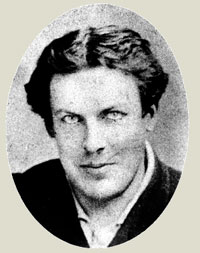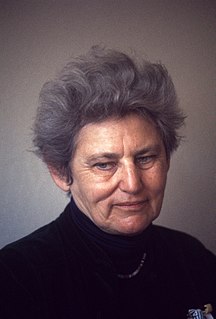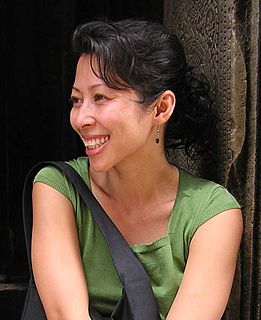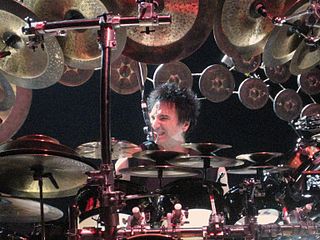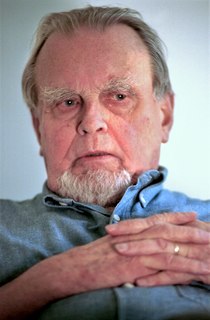Top 259 Mute Quotes & Sayings - Page 5
Explore popular Mute quotes.
Last updated on April 15, 2025.
Be helpless, dumbfounded, Unable to say yes or no. Then a stretcher will come from grace to gather us up. We are too dull-eyed to see that beauty. If we say we can, we’re lying. If we say No, we don’t see it, That No will behead us And shut tight our window onto spirit. So let us rather not be sure of anything, Beside ourselves, and only that, so Miraculous beings come running to help. Crazed, lying in a zero circle, mute, We shall be saying finally, With tremendous eloquence, Lead us. When we have totally surrendered to that beauty, We shall be a mighty kindness.
Will there never come a season Which shall rid us from the curse? Of a prose which knows no reason And an unmelodious verse: When the world shall cease to wonder At the genius of an Ass, And a boy's eccentric blunder Shall not bring success to pass: When mankind shall be delivered From the clash of magazines, And the inkstand shall be shivered Into countless smithereens: When there stands a muzzled stripling, Mute, beside a muzzled bore: When the Rudyards cease from Kipling And the Haggards Ride no more.
Invade me now, my ruthless friend,
And make me cower in the dark.
Remind me that I'm all alone
And draw upon my face your mark.
How is it that you capture me,
When all my thoughts deny your force?
Is it the reptile in my brain
That lets your terror run its course?
Baseless Fear undoes us all
Despite our quest for lofty goals.
We would-be Galahads don't die,
Fear just freezes all our souls.
It keeps us mute when feeling love,
Reminding us what we might lose.
And if by chance we meet success,
Fear tells us which safe route to choose.
I had an indefatigable curiosity about everything. But why should my fate have depended upon that? Why does the curiosity of a child born into the lowest classes have to overcome everything put in his or her way to mute that curiosity, when a child born to parents with access to the advantages of life will have his meager curiosity kindled and nurtured? The unfairness is horrifying when it is properly understood as an unfairness meted out on children, on infants, on babies.
Were it possible for us to see further than our knowledge reaches, and yet a little way beyond the outworks of our divinings, perhaps we would endure our sadnesses with greater confidence than our joys. For they are the moments when something new has entered into us, something unknown; our feelings grow mute in shy perplexity, everything in us withdraws, a stillness comes, and the new, which no one knows, stands in the midst of it and is silent.
The Little Mute Boy The little boy was looking for his voice. (The king of the crickets had it.) In a drop of water the little boy was looking for his voice. I do not want it for speaking with; I will make a ring of it so that he may wear my silence on his little finger In a drop of water the little boy was looking for his voice. (The captive voice, far away, put on a cricket's clothes.) Translated by William S. Merwin
Literary history and the present are dark with silences . . . I have had special need to learn all I could of this over the years, myself so nearly remaining mute and having to let writing die over and over again in me. These are not natural silences--what Keats called agonie ennuyeuse (the tedious agony)--that necessary time for renewal, lying fallow, gestation, in the natural cycle of creation. The silences I speak of here are unnatural: the unnatural thwarting of what struggles to come into being, but cannot.
Choosing happiness is a scary thing. Choosing love is a scary thing. When I was in the war, not only did I not have a voice, but I had to make myself not be heard, not be seen, become dumb, mute, blind, invisible, just so I could survive. When you fall in love, you become alive, all of a sudden you are singing. For me, there was a fear that the person I love would one day leave me, whether by their own choice or that they would die. How was I going to survive that? Choosing love and happiness is to know life goes on. I had to believe that.
Sonnet XXV Before I loved you, love, nothing was my own: I wavered through the streets, among Objects: Nothing mattered or had a name: The world was made of air, which waited. I knew rooms full of ashes, Tunnels where the moon lived, Rough warehouses that growled 'get lost', Questions that insisted in the sand. Everything was empty, dead, mute, Fallen abandoned, and decayed: Inconceivably alien, it all Belonged to someone else - to no one: Till your beauty and your poverty Filled the autumn plentiful with gifts.
Because my parents were American missionaries who sent me to public schools in rural Japan, I had to confront Hiroshima as a child. I was in the fourth grade - the only American in my class - when our teacher wrote the words "America" and "Atomic Bomb" in white chalk on the blackboard. All forty Japanese children turned around to stare at me. My country had done something unforgivable and I had to take responsibility for it, all by myself. I desperately wanted to dig a hole under my desk, to escape my classmates' mute disbelief and never have to face them again.
I do not see any reason why animals should be slaughtered to serve as human diet when there are so many substitutes. After all, man can live without meat. It is only some carnivorous animals that have to subsist on flesh. Killing animals for sport, for pleasure, for adventures, and for hides and furs is a phenomenon which is at once disgusting and distressing. There is no justification in indulging in such acts of brutality . . . Life is as dear to a mute creature as it is to a man. Just as one wants happiness and fears pain, just as one wants to live and not to die, so do other creatures.
When you look into the faces of these quiet creatures who don't know how to tell stories--who are mute, who can't make themselves heard, who fade into the woodwork, who only think of the perfect answer after the fact, after they're back at home, who can never think of a story that anyone else will find interesting--is there not more depth and more meaning in them? You can see every letter of every untold story swimming on their faces, and all the signs of silence, dejection, and even defeat. You can even imagine your own face in those faces, can't you?
Advance warning of Katrina's path was wrested from mute Nature by meteorological calculations and satellite imagery. God told no one of His plans. Had the residents of New Orleans been content to rely on the beneficence of God, they wouldn't have known that a killer hurricane was bearing down upon them until they felt the first gusts of wind on their faces. And yet, as will come as no surprise to you, a poll conducted by The Washington Post found that 80 percent of Katrina's survivors claim that the event only strengthened their faith in God.
Half the stuff I've written was written when I was half asleep watching the David Letterman show when some boring actress was on talking about herself. I would just mute the TV, look over to the computer and start plugging in notes. Then the next morning you go "Wow, I like this". I'd almost forget what I did, and then it would inspire me to go on and do the next thing. That's what I do. Just kind of follow my own little thing.
Forget the suffering You caused others. Forget the suffering Others caused you. The waters run and run, Springs sparkle and are done, You walk the earth you are forgetting. Sometimes you hear a distant refrain. What does it mean, you ask, who is singing? A childlike sun grows warm. A grandson and a great-grandson are born. You are led by the hand once again. The names of the rivers remain with you. How endless those rivers seem! Your fields lie fallow, The city towers are not as they were. You stand at the threshold mute.
And somewhat as in blind night, on a mild sea, a sailor may be made aware of an iceberg, fanged and mortal, bearing invisibly near, by the unwarned charm of its breath, nothingness now revealed itself: that permanent night upon which the stars in their expiring generations are less than the glinting of gnats, and nebulae, more trivial than winter breath; that darkness in which eternity lies bent and pale, a dead snake in a jar, and infinity is the sparkling of a wren blown out to sea; that inconceivable chasm of invulnerable silence in which cataclysms of galaxies rave mute as amber.
He seemed a part of the mute melancholy landscape, an incarnation of it's frozen woe, with all that was warm and sentient in him fast bound below the surface; but there was nothing nothing unfriendly in his silence. I simply felt that he lived in a depth of moral isolation too remote for casual access, and I had the sense that his loneliness was not merely the result of his personal plight, tragic as I guessed that to be, but had in it, as Harmon Gow had hinted, the profound accumulated cold of many Starkfield winters.
It's all about self-discipline. Like, self-obsession is connected completely with self-loathing, and it's the same with, if you've got a weight problem. It's all about... finding some worth in yourself, knowing that you've got the discipline to do it, and knowing that other people maybe can't do it. And it's also, I think, really connected to the fact that you almost feel, like, silent, you have no voice, you're mute, there's just no, you've got no option. Even if you could express yourself nobody would listen anyway. Things that go on inside you, there's no other way to get rid of them.
Find something you like, go into a room, close the door and read it aloud. Read it aloud. Everybody in the world who likes dance can see dance, or hear music, or see art, or admire architecture - but everybody in the world uses words who is not a recluse or mute. But the writer has to take these most common things, more common than musical notes or dance positions, a writer has to take some adverbs, and verbs and nouns and ball them up together and make them bounce.

